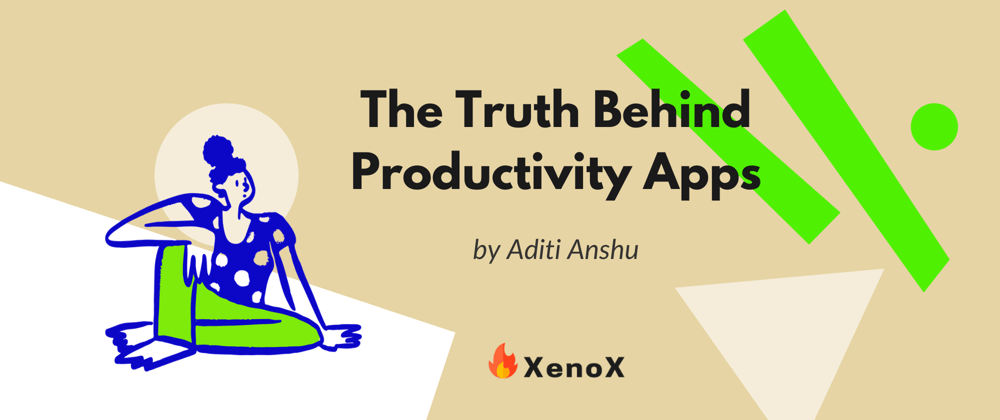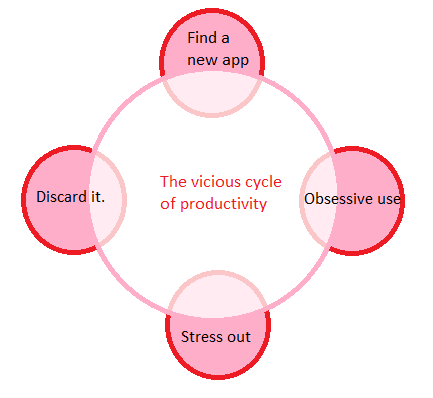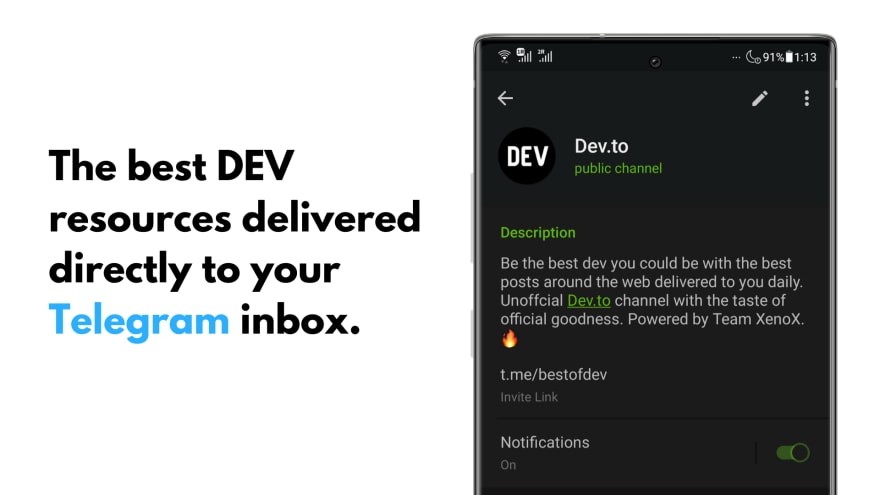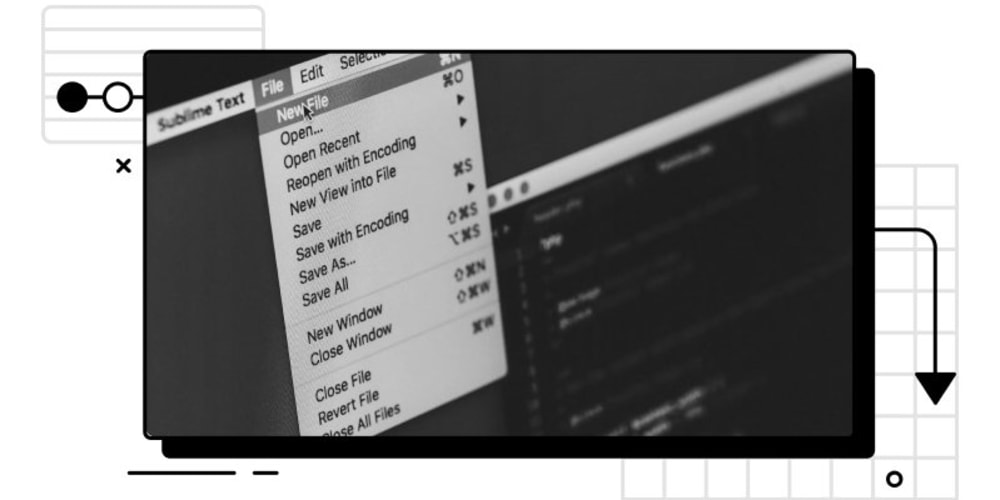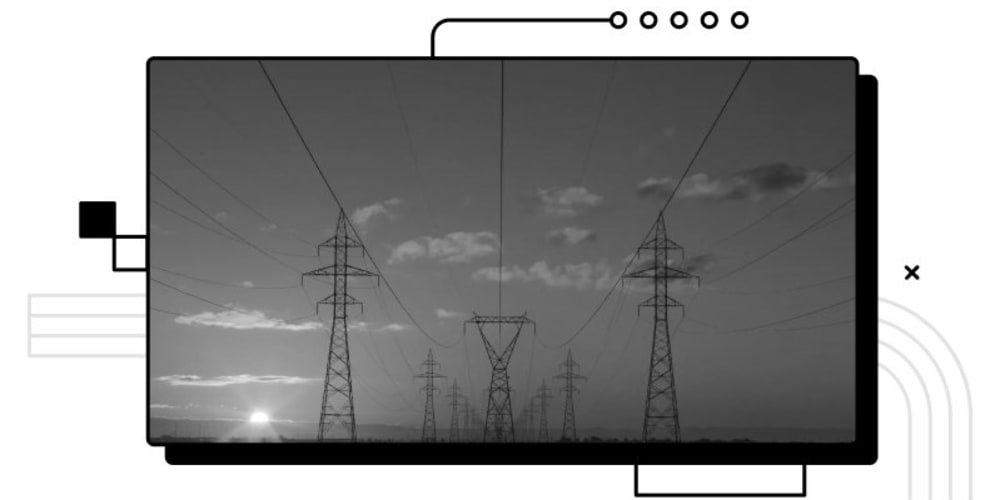Focus. Productivity. Hustle.
These words are all too common in the productivity space, a space that represents the sum total of all human desire to achieve more. Productivity is not just a mere concept anymore, it has materialized into a whole industry, one that is dominated by apps. There are hundreds of productivity apps out there, ranging from note-taking apps like Evernote to task management apps like Todoist and more. There seem to be new additions to this list almost every day. Don't believe me? Just check ProductHunt, and you'll find some kind of productivity app launched there every other day. All of these apps claim to make a person more productive and hyper-focused.
I've been an avid user of productivity apps for years, which is why this question often pops up in my head: Are these apps actually making us more productive or is it just a gimmick to trick people into feeling better about themselves? Or worse, are we all, perhaps, unknowingly being led towards the normalization of "hustle culture", where no matter how productive you are and how many hours you put in, there will be someone else one-upping you?
So yes, this is a question I think about a lot.
"Do productivity apps actually make us more productive?"
Well, how do we judge that? It's simple, we consider the positive and negative impacts of these apps, and then come to a conclusion for ourselves. Something that might only be a minor inconvenience to some might be a major problem for others. It's not an absolute scale, keep that in mind.
Here are my thoughts on this.
The Positives
Adulting means that you have tons of things to do everywhere, all the time. You need to achieve targets at work, buy groceries for home, and maybe even chalk out the time to achieve a personal goal, like learning to play an instrument. We lose track of our mental to-do lists, and with so much information being bombarded at us from all directions (emails, texts, social media, etc.), these productivity apps act as a blessing for us.
- We always have new opportunities showing up, but they're not all equally worth pursuing, as some are much more urgent/important than others. Productivity apps help us manage our priorities and exercise good judgment.
In an age of infinite leverage, judgement is the most important skill.03:13 AM - 20 May 2018
- Many productivity apps get you to log in the number of hours you have been productive and the number of hours wasted. This makes you more conscious of your time and the things you choose to focus on.
- Deadlines and due dates are an important part of everyday life. Some tasks just need to be finished by a certain date or time. Productivity apps help you keep track of the tasks due and how your productivity has been throughout a period of time and makes it difficult for important tasks to slip through the cracks.
- Some apps even have novel features to help you keep track of your progress through graphs, charts, etc. For visually-oriented people, like me, this can be a great thing!
- Productivity apps can also help you improve your mental prediction model. When you set an estimated timeframe for each task and then match it against actual results, it can improve your estimates greatly over time, thereby letting you plan your days/weeks even better in advance.
- Organizes your life. In general, having productivity apps does make your life more organized and clutter-free. It helps you plan better and prioritize better.
The Negatives
As we move on, let's talk about the negatives, of which there are plenty for sure. The apps give feedback to their users by showing some statistics, graphs, and numbers. The interpretation of said feedback by the user, however, makes all the difference. There are two main ways of doing that:
- One where you see the negative side of your whole way of working, i.e. seeing how much time you have wasted and how much work is still left for you to do. For some, this sort of data creates an inner competition and a drive to improve even further. But for others, it can be stressful. This can start a cycle of despair, where it becomes increasingly difficult for them to stay focused, especially when their work demands them to stay focused for extended periods of time to have any hope of finishing their tasks on time. It increases the risk of overworking and being burned out. The threshold is different for everyone, but it still does exist. For consistent productivity over a long period of time, a sense of balance needs to be achieved.
- The other way that the app presents the data is where you see the number of hours you've put in and the tasks you’ve managed to complete. This way, although it sounds positive, has negligible overall effect on your productivity. We often look at the progress made throughout the day, deem it enough, and move on. We feel a sense of achievement even though the work done is just what we would do regularly. We tend to be the way we were before and celebrate without actually improving. But true progress lies in analyzing your performance over a period of time, not just monitoring it. Then you can see where you're lacking and devise ways to improve.
- These apps also tend to become their own worst enemies quite often. They might create undue stress for the user, fail to wedge themselves securely into the user's day-to-day routine, or simply bore the user after a while to the point where they no longer feel like using the app. It's quite a vicious pattern that I've observed in many people, Start with enthusiasm > Continue obsessively for a few weeks > Lose interest > Discard the app. This sort of use defeats the whole point of productivity apps.
Therefore, it ultimately boils down to the user's sense of balance and their way of interpreting the data presented to them.
How To Use This Info To Our Advantage?
- Do not rely on them completely. First off, know that the apps have a limit to which they can help you. Being productive is a choice you should make every day, consciously and purposefully. It's not something an app can instill in you.
- Choose an app that is customizable to your needs and timings. An unsuitable app will hinder you more than help you, and you'll only feel worse for not being productive enough. Try out several apps before settling on one of them. But once you do, settle on an app for good. There will always be something new and shiny in the market. Resist the temptation to switch!
- Know your limits. We, humans, are optimistic by nature and we often create unrealistic expectations for ourselves. Productivity apps can definitely help you improve, but expecting them to completely turn your life around and make you hyper-productive is impractical. Everyone has different limits; know yours. Use your apps to monitor your peak performance and raise your average.
- Aim for gradual increase in productivity. Don't burn yourself out. It's a long-game, so treat it that way. Focus on improving a little every day instead of going all-out in a blaze of glory. Think of productivity as an exercise of willpower. You wouldn't go up to the squat rack and pick up 100kg on your first day at the gym, would you? Productivity is the same. Flex your willpower muscles and train them by gradually increasing stress and stepping out of your comfort zone.
Conclusion
Even though productivity apps have made our lives easier in many ways, we should take it all with a pinch of salt, as we are not machines. There will often be times when we can't be productive. There is no shortage of reasons for that, but don't be too hard on yourself during these phases. Focus on doing better and getting back to the rhythm. Sometimes, these unproductive periods can be a necessity for our overall performance as an individual, a call for help from our minds and bodies to slow down and rest for a bit. That is the time for one to self-reflect and come out stronger.
For further reading on this topic: Networked Affect by Ken Hillis, Susanna Paasonen, Michael Petit
P.S.
If you're passionate about open-source development and looking to contribute to exciting open-source projects, Team XenoX might just be your calling. We're always working on something cool. So I'd love for you to join us! Check out our work at XenoX Multiverse! 🔥
Write for XenoX!
Team XenoX is also looking to add more authors to our publication. If you like writing and have some creative ideas you'd like to share, we'd love to have you! 💯 Your blog posts will gain a lot more eyeballs. 👀 You'll get a chance to win some cool swag. And hey, you also get expert consultation and free proofing/editing from our best. 😉😎
If you want to apply, just go here and enter your details:
https://forms.clickup.com/f/1rz92-3351/VMFE0Q81LI7E0A92Z0
Join our Telegram Channel!
We share the best resources, articles, and other cool stuff for devs from across the internet on our Telegram channel! Join the party! 👉🏼 Link
